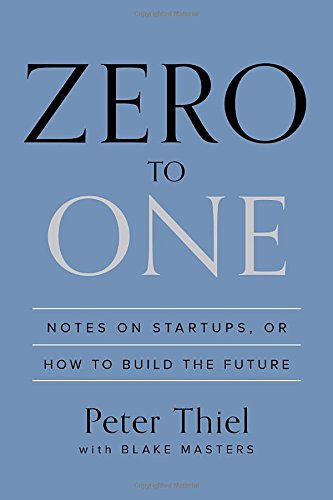It’s easier to copy something than to create something new. Each time we copy, we move from 1 to n, adding more of the familiar. But each time we create something, we move from 0 to 1. This is the premise behind ‘Zero to One: Notes on Startups, or How to Build the Future’ by Peter Thiel. Thiel is a highly successful entrepreneur who started PayPal, Palantir and the venture capital firm Founders Fund. He was the first outside investor in Facebook and sits on its Board. His very enjoyable book was written in collaboration with Blake Masters, a Stanford University student who attended Thiel’s 2012 class on startups. Masters’ very detailed notes generated a lot of discussion when they were posted online, eventually leading to this collaboration with Thiel.
In his book, Thiel argues that while the easiest way to advance is often to do more of the same cheaply, human creation and technological advancement is what holds real value, having given the world windmills and steam engine as well as cars and smartphones. Those who create something new must become a monopoly and avoid competition, which can lead to big profits down the line. When we make more of the same, competition is intense, and profitability lessens.
Thiel gives the example of how restaurants, a competitive business without differentiation, compare with Google, which holds a monopoly. Consumers complain that monopolists extract abnormal profits at their expense. While that’s true for monopolists like government utilities, which don’t often change, monopolists that constantly innovate are good for consumers – just think of Apple’s iPhone or Microsoft’s software systems. Those kinds of monopolies see rising cash flows when a competitive business sees a decline.
Thiel offers several valuable tips for becoming a monopoly, including starting small, scaling up slowly and keeping a low profile to avoid competition. Last movers have a chance to learn from others.
He also characterizes individuals as being either optimists or pessimists facing a definite or indefinite future. Thiel is critical of the current education system, which encourages competition when it comes to grades. Students compete endlessly for higher grades, then game their resumes to include participation in sports, leadership skills and academic achievement. This creates stereotypes and people who are taught to be risk-averse and careful, which makes it harder to innovate. An individual with a sound business plan in a startup, he argues, isn’t putting his or her future in fate’s hands. Founders look out for secrets that are hard to find because conventions are easy to figure out and mysteries are impossible to trace. Failures are often not the result of a bad idea, but of a failure to grasp the importance of sales and marketing. This is particularly true for companies with a complex product to sell, like SpaceX.
Thiel points to the field of clean energy as another example where startups succumbed to the hype and moved ahead without thinking about basics like differentiating their product and the durability of their business. He also talks about successful founders who are unique and peculiar, explaining how these individuals can extract extreme loyalty from teams while possessing a singular focus.
Whether we rise up or flame out in the future depends on us. If we transition from 0 to 1, we can make our lives different and better.
‘Zero to One’ is an excellent read for people currently in business and for those planning to start something new.


